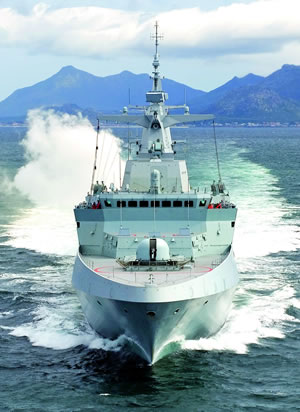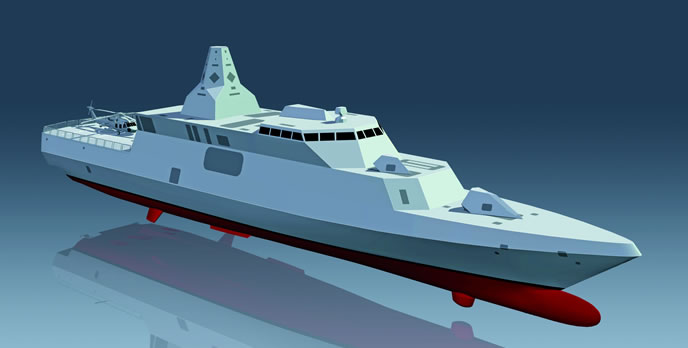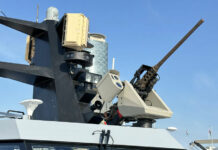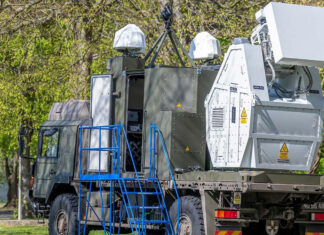
Israel is interested in acquiring two corvette size ships to extend its naval operational capabilities. After analyzing the U.S. Littoral Combat Ship (LCS), Israel decided these vessels would be too costly. While each LCS would have cost $480, Israel was prepared to spend up to $300 per ship, which roughly corresponds with what the Malaysian Navy spent on a similar design (MEKO A-100 Kedah class). Yet, an obstacle that could hinder the potential sale is the recent acquisition of Blohm + Voss Shipyards – the shipbuilder of the MEKO Class vessels – by the Abu Dhabi MAR Group of the United Arab Emirates.

and delivered israel already deploys three medium size Saar V Eilat class corvettes, slated for an upgrade by 2011. The modernization will include the introduction of a new phased-array radar system and the replacement of current point defense missile systems with the Barak 8 extended air defense system. Fielding such new networked air defense capability will provide the Israeli surface fleet independence of air-cover for the first time, enabling the Israeli vessels to deploy further away from their shores.
Originally the Israel Navy turned to the Italian shipbuilder Fincantieri and ThyssenKrupp Marine Systems (TKMS) in Germany for proposals. Construction or the assembly of the vessels by Israel Shipyards in Haifa has also been considered. The possible subcontracting of work to U.S. manufacturers, by benefiting from Foreign Military Sales funding has also been evaluated.


Israel is said to be interested in a ‘stretched’ version of the MEKO A-100 corvette, a ship with a displacement of 2,200 tons. However, for such a vessel to become superior to the current Eilat class, the Israelis should opt for the latest, advanced stealth version of the MEKO CSL, which has already been designed for such specifications. The CSL will better adapt for the Israeli requirements for versatility, deck space and sensor placements. (read more about the Meko A class and MEKO CSL)
A major obstacle for the potential deal is the recent acquisition of Blohm + Voss Shipyards – the shipbuilder of the MEKO vessels – by the Abu Dhabi MAR Group of the United Arab Emirates. In October 2009 MAR and TKMS announced the agreement to establish a joint venture ‘Blohm + Voss Naval’, for the design and manufacturing of naval surface ships – frigates, corvettes and offshore patrol vessels. Israel could find such move difficult to digest, accepting ‘Blohm + Voss Naval’ as a strategic supplier. Considering this obstacle, and well aware of the potential opportunities, TKMS and Israel should have worked out a solution to satisfy both the Germans and Israelis. A previous attempt to merge procurement of German vessels with Israel Navy acquisitions or the transfer of existing German Navy vessels to Israel have not materialize.
Being a loyal supplier of naval equipment for many years, Germany is considered a safe choice for Israel. Germany already provided two Dolphin class submarines to Israel at no cost and waived part of the cost for the remaining three. The reason for the generous German gesture is the understanding that claims for increased compensation for remaining survivors of the holocaust will be deferred.
Germany already delivered three submarines while two are still under construction. These new subs utilize Air Independent propulsion (AIP) systems enabling the Dolphins to remain submerged for several weeks. Israel’s submarines are believed to be equipped with underwater-launched cruise missiles, capable of striking land targets at long range. With such capability, Israel possesses a potential ‘second strike’ capability that could establish a viable deterrence against unconventional missile attacks from adversaries such as Iran. Extended endurance provided by the AIP could improve the survivability of such strategic missile submarines, enabling them to maintain combat patrols in the region of the Arabian Sea, maintaining strategic Iranian targets at risk. (Continued…)
















